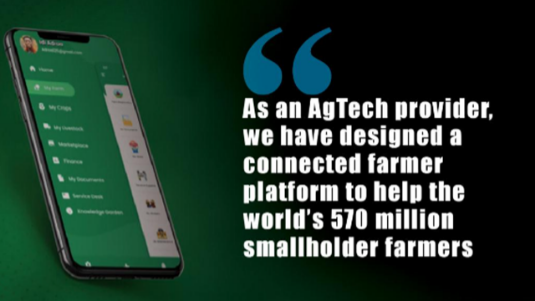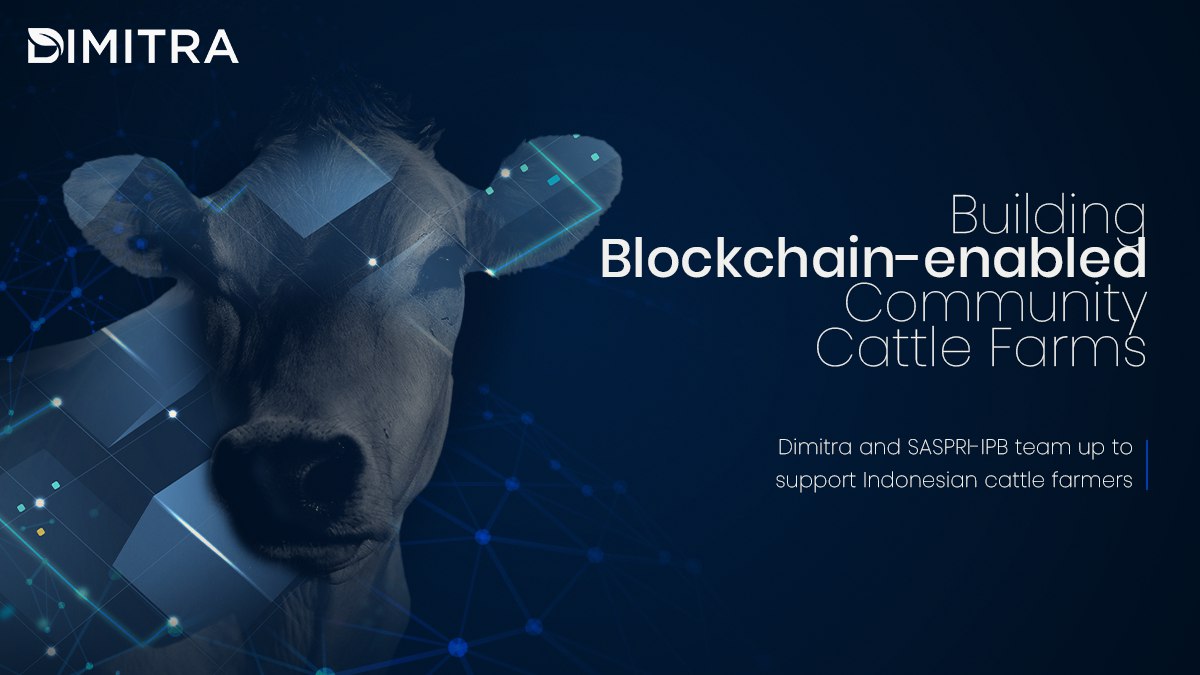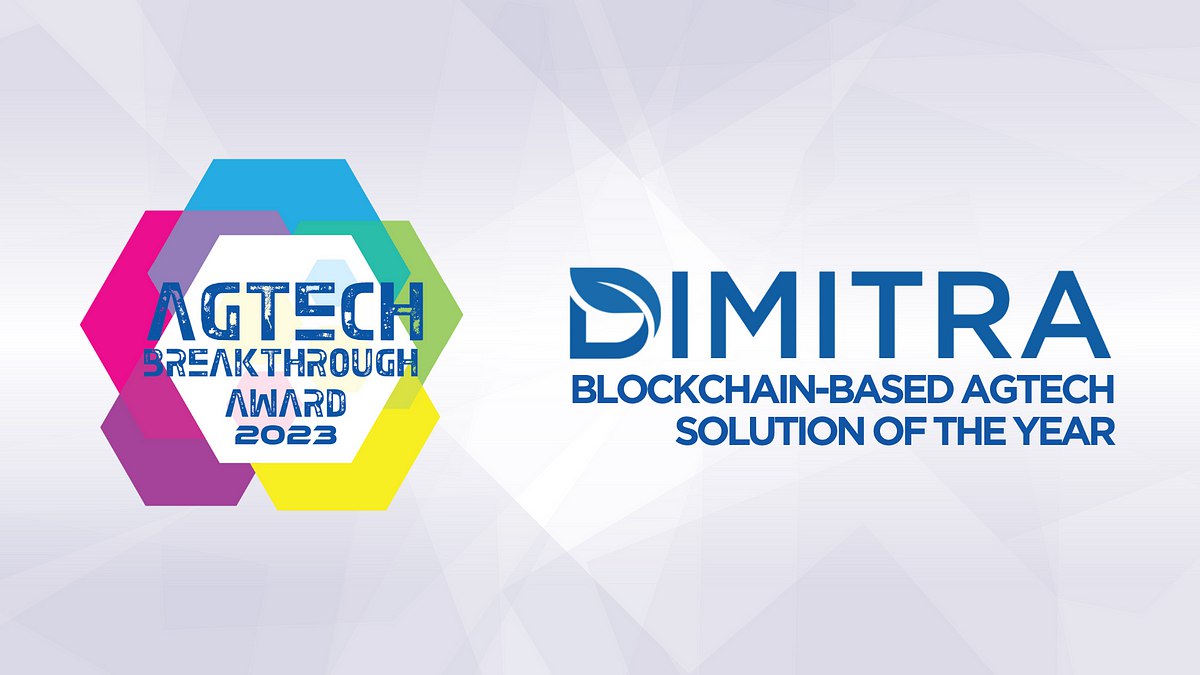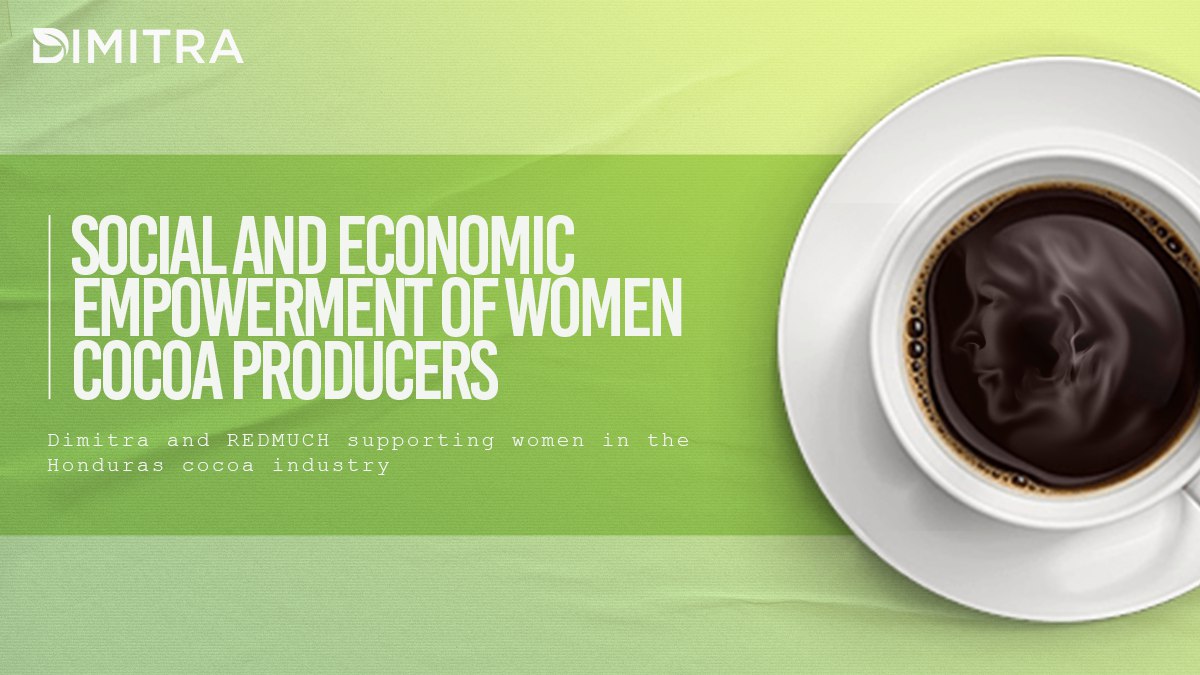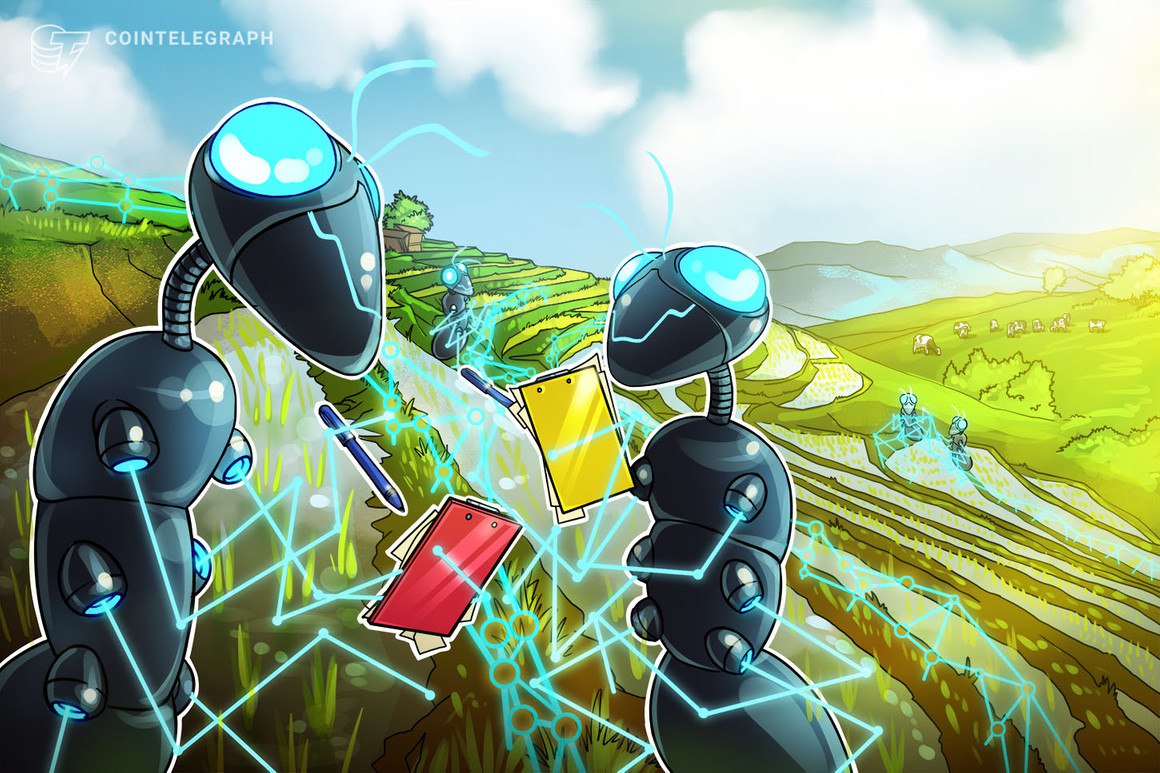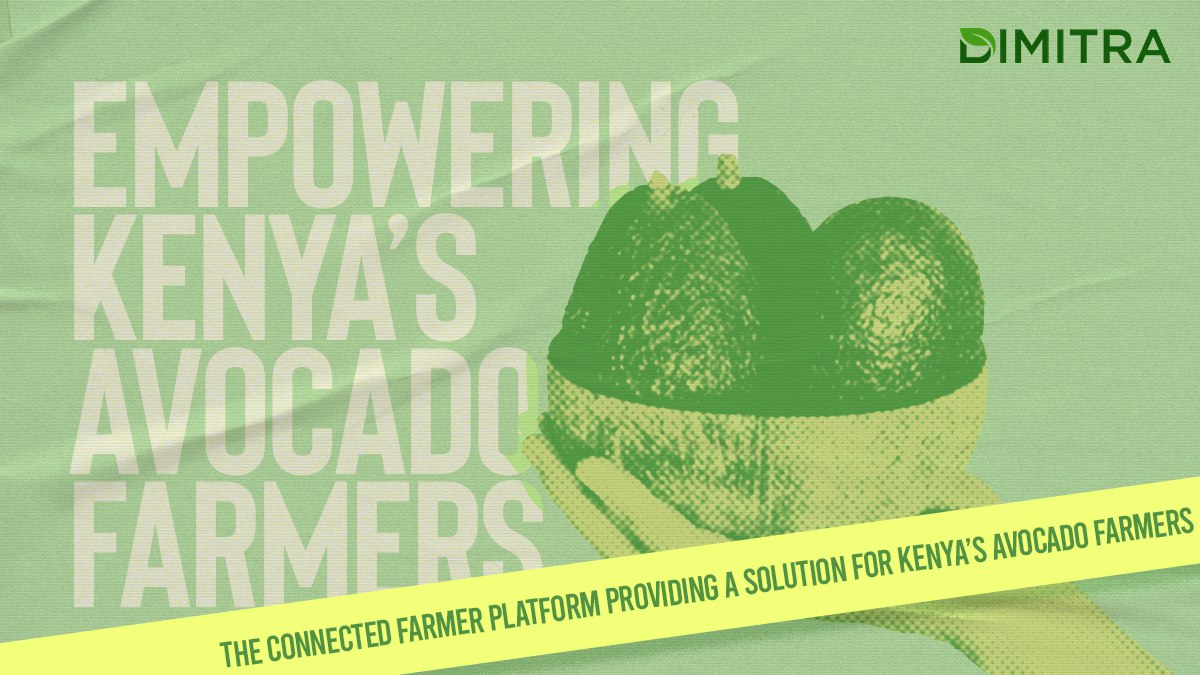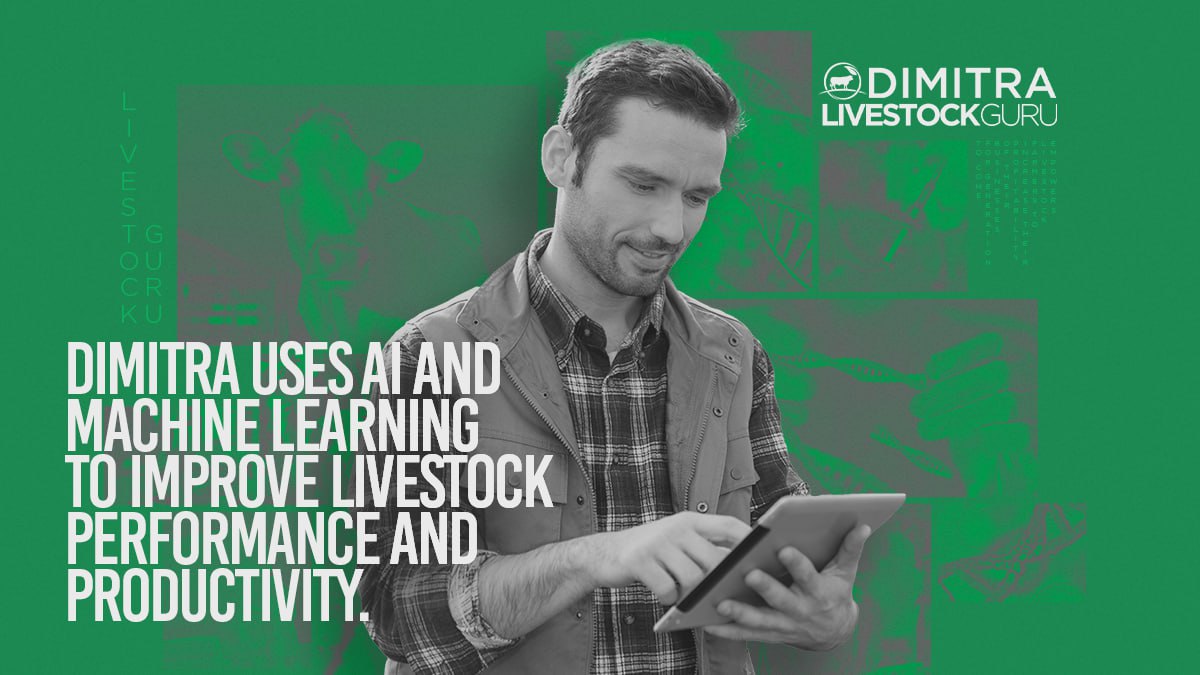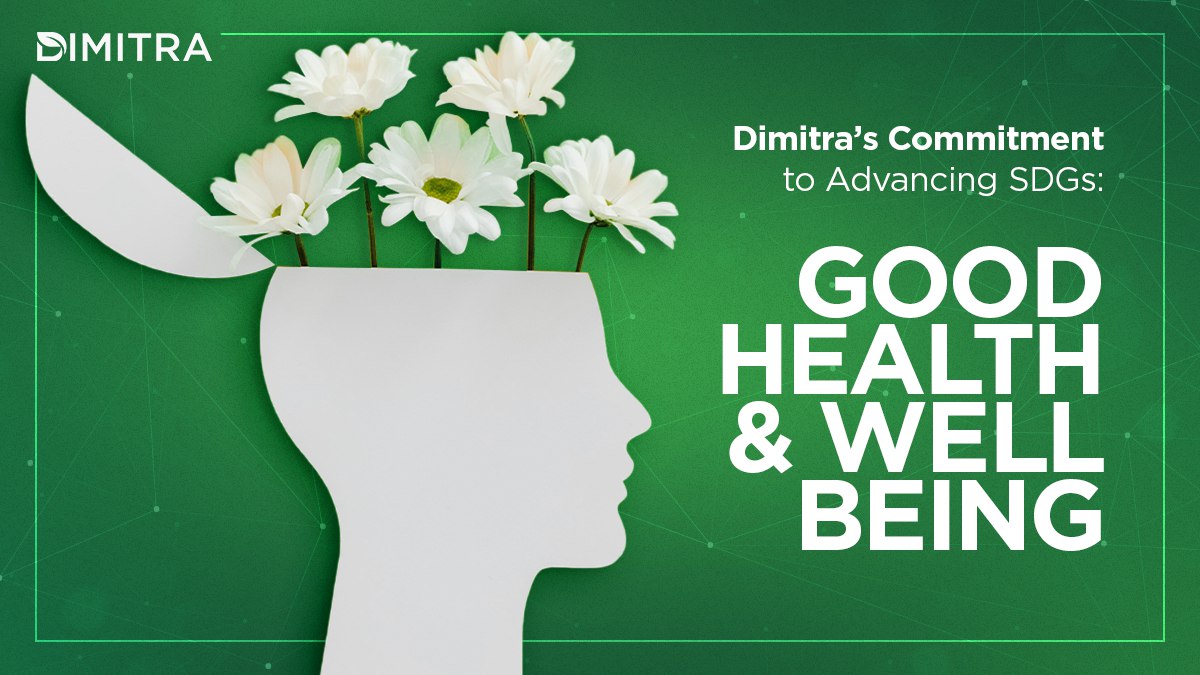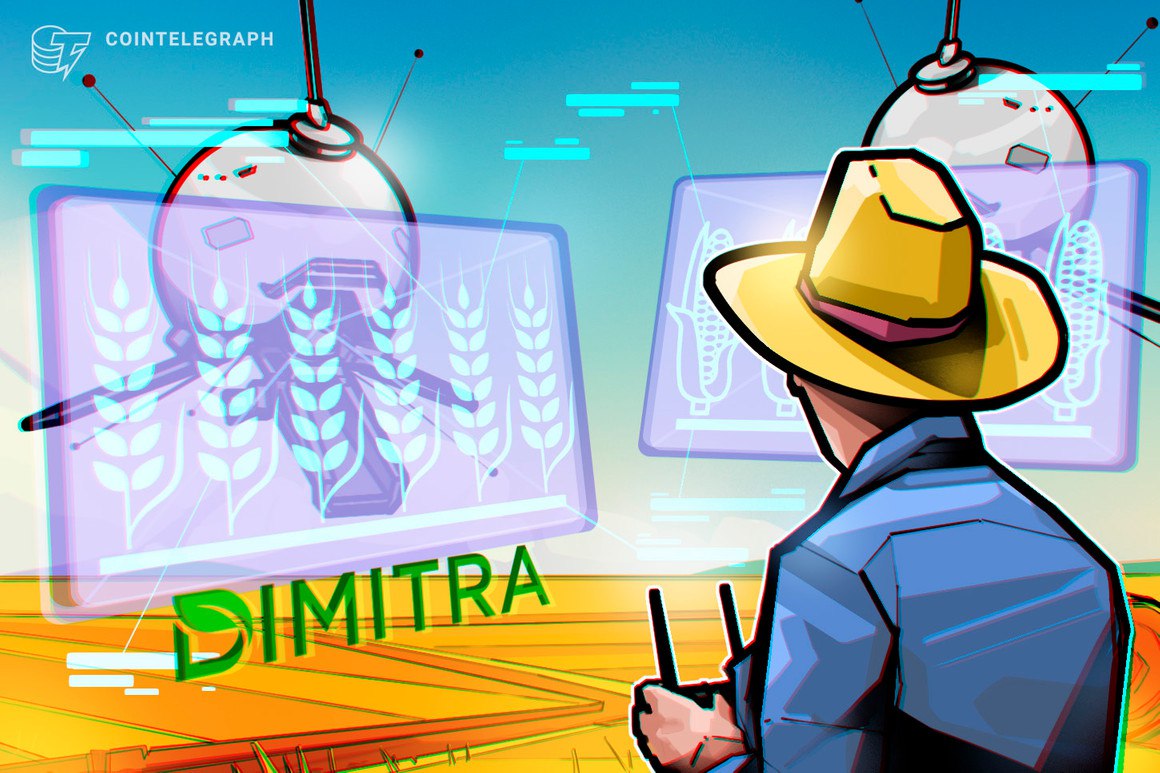Tackling Fall Armyworm Infestations in Papua New Guinea with Advanced Drone Solutions
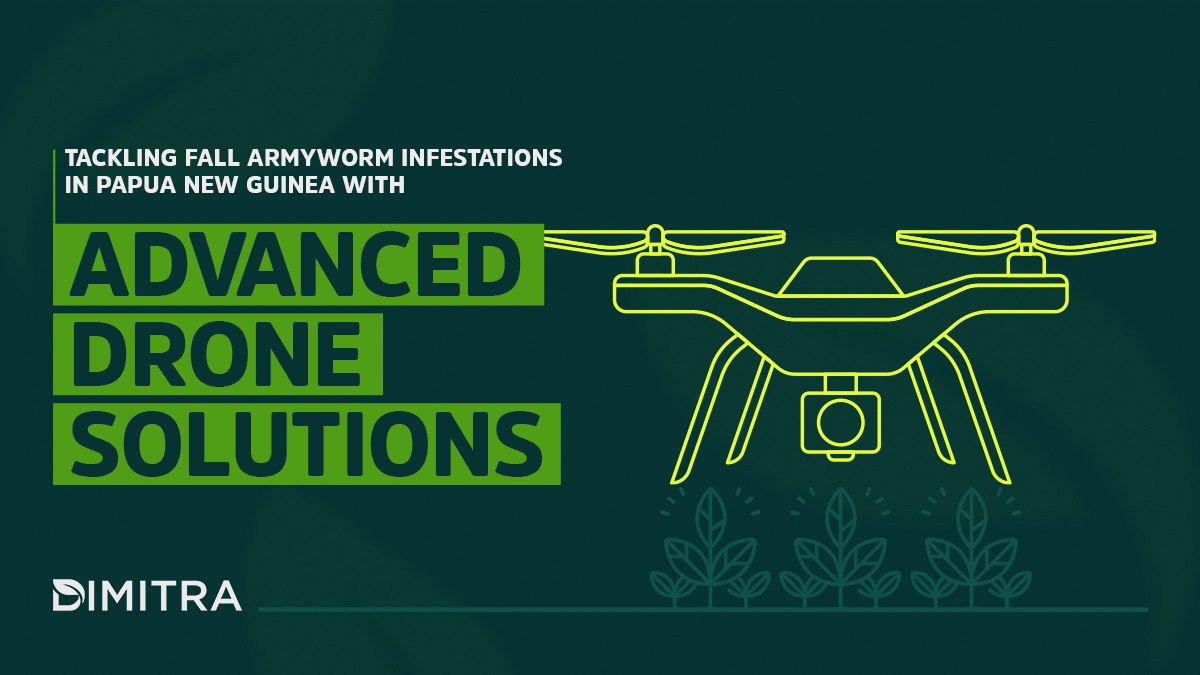
Dimitra PNG – Rumion Limited is a pig farming, feed crops and cattle grazing enterprise located in Papua New Guinea (PNG) with around 3,000 total acres of property and 500 acres of maize. Much like other farms in the area, Rumion Limited faces problems from pests.
The Fall Armyworm (FAW), in particular, presents unique challenges for maize farmers in the area. While they tend to be a manageable pest during the early growth stages, the larvae burrow into the whorl, a tightly wrapped and twisted group of corn leaves, as they mature — creating significant issues for pesticide distribution and effectiveness.
Rumion Limited understands the risks of FAW infestation all too well. Just a few years prior, these dangerous pests destroyed over 50% of their maize harvest.
Dimitra Incorporated is a global Agtech company focused on helping smallholder farmers, much like Rumion Limited, with technology-based solutions that leverage the latest advancements in mobile tech, machine learning, satellite and drone imagery, genomics and advanced farming research.
Alongside local and other technology partners, we worked closely with Rumion Limited to develop next-generation solutions to the FAW problem and methods that are easily adaptable for other farms.
Rumion Limited’s FAW Problem
The FAW is a moth pest noted for its taste for maize and its reputation for crop destruction. The term armyworm actually describes the large-scale infestation of crops, and for farmers across PNG, the FAW is a real nuisance — leading to reduced yields and other potential issues.
The FAW problem is not unique to PNG as it is causing damages in many regions around the world. For example, studies from Eastern Zimbabwe estimate the impact of FAW damage on maize yields at around 11.57%. Across PNG, the FAW finds the suitable tropical environment and fields of maize the perfect place to feast and grow.
Research shows that there is a limited window for effective FAW management.
Controlling FAWs at the sapling stage (10 to 15 days after seeding) is easy. But, after 35 days after seeding (DAS), the larvae enter the whorl of the crop, making it difficult to control as the larvae may not come in contact with the pesticide solution.
This presents a unique challenge for farmers. If FAW is not controlled at an early stage, they often lose the chance to manage the problem effectively.
Understanding Pesticide Use – Dimitra PNG
Understanding when the right time to spray, and the right pesticides to use, means on-the-ground analysis of crops — a task often unavailable for either practical or financial restrictions.
Other issues arise from the practice of manual spraying. Not only does manual spraying pose significant poisoning risks for operators, but spraying tall corn stalks is fairly ineffective as it fails to meet the demands for quick control over the FAW.
In order to cover the large surface area of the plant, farmers need to spray multiple times. This can lead to a few problems:
- Chemical overdose
- Damage to beneficial insects
- Water waste
- Pesticides may not even reach the insect
The challenges presented by the FAW are not unique to PNG but rather a problem wherever the pest calls home. Finding effective solutions that reduce resource use and promote sustainable practices is essential not only for managing FAW infestations but also for supporting Dimitra’s mission of empowering smallholder farmers in the area and globally.
Dimitra’s Solution
The economic threshold level (ETL) is the pest density at which farmers should consider management actions to prevent the population from reaching the economic injury level (EIL), the lowest population that will cause economic damage.
Unfortunately, not every farmer has access to the necessary tools to determine these essential levels of pest infestation — let alone the tools needed to control an infestation.
Dimitra, alongside tech partners like Mast Electrical and Telecommunication, UnCrewed Solutions and local partners Theodist, developed a FAW management system that leverages the power of drone and satellite imagery as well as comprehensive pest control software component that helps Rumion Limited better control and understand FAW infestations on their maize crops.
The innovative system works by pairing data coming from satellite imagery with local drone imagery to discover insights about infestation levels on crops. The imagery drones, in particular, easily assess FAW damage based on stages of symptoms:
- First Stage: small FAW caterpillar sightings. This includes seeing clear or window-like patches on leaves.
- Second Stage: larger FAW caterpillar sightings that usually result in irregular elongated holes. Once they enter the third instar, feeding causes ragged-edged holes.
- Third Stage: extensive leaf damage at this stage, with whorl feeding symptoms and fecal matter presence.
- Fourth Stage: larvae cause damage to the tassel and ear of the corn. Chemical control measures are not advisable at the later stages of corn growth when larvae are hiding inside the ear.
By gathering this data from the drone pilot and the farm, Rumion Limited can discover key insights into the health of crops on the ground and inform pest control practices.
Key Benefits of Drones
The drones themselves provide a few key benefits during the spraying process as well. For one, they can operate at night, when the FAW caterpillars tend to reveal themselves. They also atomize pesticides into micron-level droplets, allowing for even distribution and adhesion of chemicals to the surface of the plants at a higher coverage rate.
Additionally, the strong downdraft from the drone’s propellers assists in reducing liquid drift while increasing pesticide deposition — which is when both sides of the leaves and the central part of crops can be more precisely targeted.
This can increase the FAW’s exposure to chemicals and reduce the amount of pesticides needed, better conserving beneficial insects.
Drone operators work with strict rules. This includes avoiding spray drift to flowering crops, not spraying in the morning or the hottest part of the day and watching the weather to find the right and most effective time to spray.
Of course, drones are only part of the equation. Alongside drones are satellite imagery.
Using Satellite Data – Dimitra PNG
Dimitra uses five types of satellite indices during various stages of the crop season:
- Land surface water index (LSWI) monitors moisture levels.
- Real-edge chlorophyll vegetation index (RECI) monitors nutrient levels.
- Modified soil-adjusted vegetation Index (MSAVI) monitors crop health.
- Normalized difference vegetation index (NDVI) is used during the starting and harvesting months and is most suitable in mid-season months.
- Normalized real edge vegetation index (NDRE) measures crop greenness, detecting the yellowing of leaves during the mid and late-stage of the crop.
With satellite data, we look at the images and can determine what exactly is happening. It’s not that easy to paint the full picture of what’s going wrong with this data alone, though. You need an agronomist on the team and on the ground to get more information. This will allow farmers to understand the problem more holistically and find the right solution faster.
These tech-driven efforts, combined with advanced machine learning and data science methods, gives Rumion Limited the tools and insights they need to better understand their FAW problems in real time and discover effective solutions for control and management.
Data-Driven Results in Precision Agriculture
With these tech-based solutions in hand, Rumion Limited is better able to identify FAW threats early and accurately. Advanced satellite and drone imagery, combined with insights from the ground, paint a comprehensive picture of crop health across the property.
With the software arm of the Dimitra solution, the Connected Farmer App, Rumion Limited can take all this information and plug it into a detailed pesticide module. The application will help farmers on the ground assess the damage based on the symptom stages listed above to determine the correct method of spraying and identify which chemicals are appropriate for that particular stage of FAW infestation and maize growth.
This helps these farmers be more judicial with how they apply pesticides. Instead of continuously pumping pesticides hoping for results, which often presents a significant financial challenge, Rumion Limited can know exactly what and where to spray.
All this allows for better real-time decision-making to take place on the ground, leading to better yields, stronger crops and a healthier environment.
“Partnering with Dimitra will enable the first use of agricultural-specific drones in fighting the FAW infestation in PNG, with the aim to reduce human exposure to chemicals and increase application efficiency.” — David Duran, General Manager, Rumion Limited
Beyond PNG: The Dimitra Mission
Rumion Limited’s FAW problems required a comprehensive approach to tech integration that addressed the unique issues of their farm. While Dimitra’s solution encompasses a use-case-driven approach to this issue, the methods and practices can apply to virtually any agricultural problem.
Part of the issue with understanding the problems on the ground is that what causes damaged crops can vary. From heat damage to nutrient issues, Dimitra’s system can help farmers across the globe better understand the health of their crops and make better management decisions.
Moreover, the data science and machine learning arm of the Rumion Limited project can extend to other farms for other purposes.
While the models trained on maize crops are great at identifying FAW issues, other models can accomplish different goals. For example, drone and satellite imagery of a fruit farm alongside custom ML models can quickly identify the age of plants as well as the number of plants in a given area.
But it’s not just crops; it’s cattle too. These systems can easily do things like determine the weight and traits of cattle through imagery alone.
What Dimitra is developing in PNG for Rumion Limited is a single use-case but proof of concept that this type of Agtech-based system is broadly applicable to all kinds of unique agricultural issues.
To learn more about Dimitra, our mission and our suite of next-generation Agtech tools, like the Connected Farmer, Livestock Guru, Connected Coffee and Deforestation applications, be sure to connect with the team today.
Dimitra Incorporated
New Horizon Building, 3-1/2 Miles Philip S.W. Goldson Highway, Belize City
info@dimitra.io